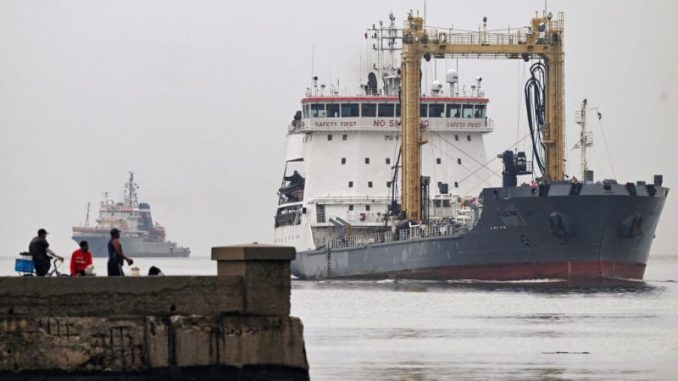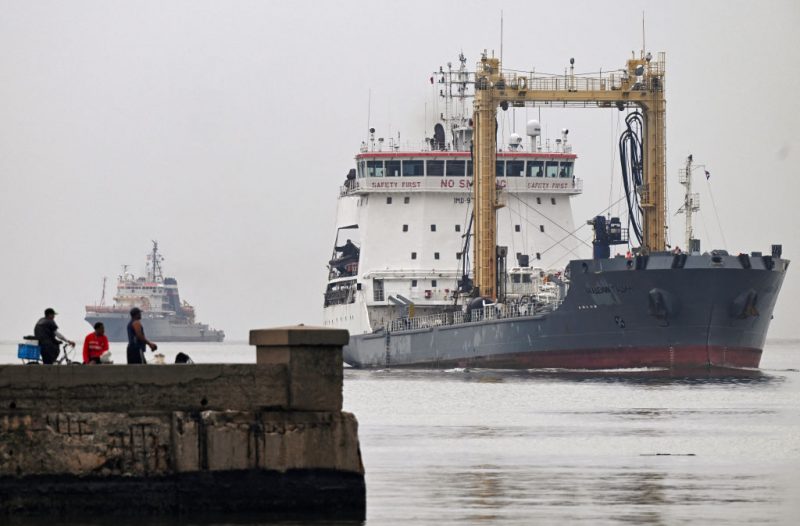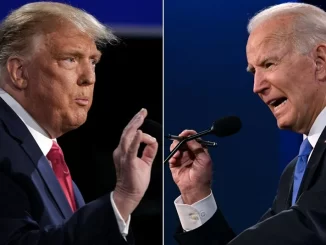

OAN’s James Meyers
1:47 PM – Wednesday, June 12, 2024
A fleet of Russian warships have finally arrived in Havana in a visit meant to display a purposeful “show of strength” amid tensions with the west over its support for Ukraine.
Advertisement
Four vessels, including the nuclear-powered submarine Kazan and the frigate Admiral Gorshkov, entered Havana Bay, Cuba, early on Wednesday.
The flagship frigate, adorned with the Russian and Cuban flags, was greeted by 21 cannon salutes. Sailors in uniform stood in military formation as they approached the land.
According to the U.S. military, they expect the exercises to involve a handful of Russian ships and support vessels, which may also stop in Venezuela.
U.S. officials also announced that they are “closely monitoring” the visit. The U.S. Navy utilized sea drones to shadow the Russian vessels as they got closer to Cuba, according to CBS News.
Russia is a longtime ally of Venezuela and Cuba, and its warships and aircraft have periodically made stops into the Caribbean. However, this mission comes less than two weeks after President Joe Biden authorized Ukraine to use U.S.-provided weapons to strike inside Russia to protect Kharkiv, Ukraine’s second-largest city.
Russian President Vladimir Putin suggested that his military could respond with “asymmetrical steps” elsewhere in the world.
“Most of all, the warships are a reminder to Washington that it is unpleasant when an adversary meddles in your near abroad,” said Benjamin Gedan, director of the Latin America Program at the Washington-based Wilson Center think tank, referring to the Western involvement in Russia’s war in Ukraine. “It also reminds Russia’s friends in the region, including U.S. antagonists Cuba and Venezuela, that Moscow is on their side.”
The visit was announced last week by Cuban officials who said that such visits from friendly countries were standard practice, and that the Kazan carried no nuclear weapons. They further stated that there was no threat to the region.
Havana is just 100 miles from Key West, Florida, and the timing of the visit suggests more than “standard practice,” according to William Leogrande, a professor at American University.
“The visiting Russian warships are Putin’s way of reminding Biden that Moscow can challenge Washington in its own sphere of influence,” Leogrande told AP News.
The timing of these exercises also raise questions regarding whether Venezuela’s government may use it as an opportunity to shore up President Nicolas Maduro’s bid for a third term in the July 28th election.
“It is almost unthinkable that Maduro will risk actually losing power,” said Evan Ellis, Latin America research professor with the U.S. Army War College.
“The most obvious alternative, consistent with Venezuelan military’s recent moves … is to fabricate an international crisis that would provide an excuse for ‘postponing’ Venezuela’s election,” he continued. “The presence of Russian warships in the vicinity would greatly add to the escalation risk of any such crisis that Maduro would fabricate, which is possibly the point.”
U.S. officials have indicated that they are aware of the visit, but they currently do not consider it to pose a threat to the country. Additionally, officials said their understanding was that the nuclear-powered submarine was not carrying nuclear weapons.
Stay informed! Receive breaking news blasts directly to your inbox for free. Subscribe here. https://www.oann.com/alerts





Be the first to comment